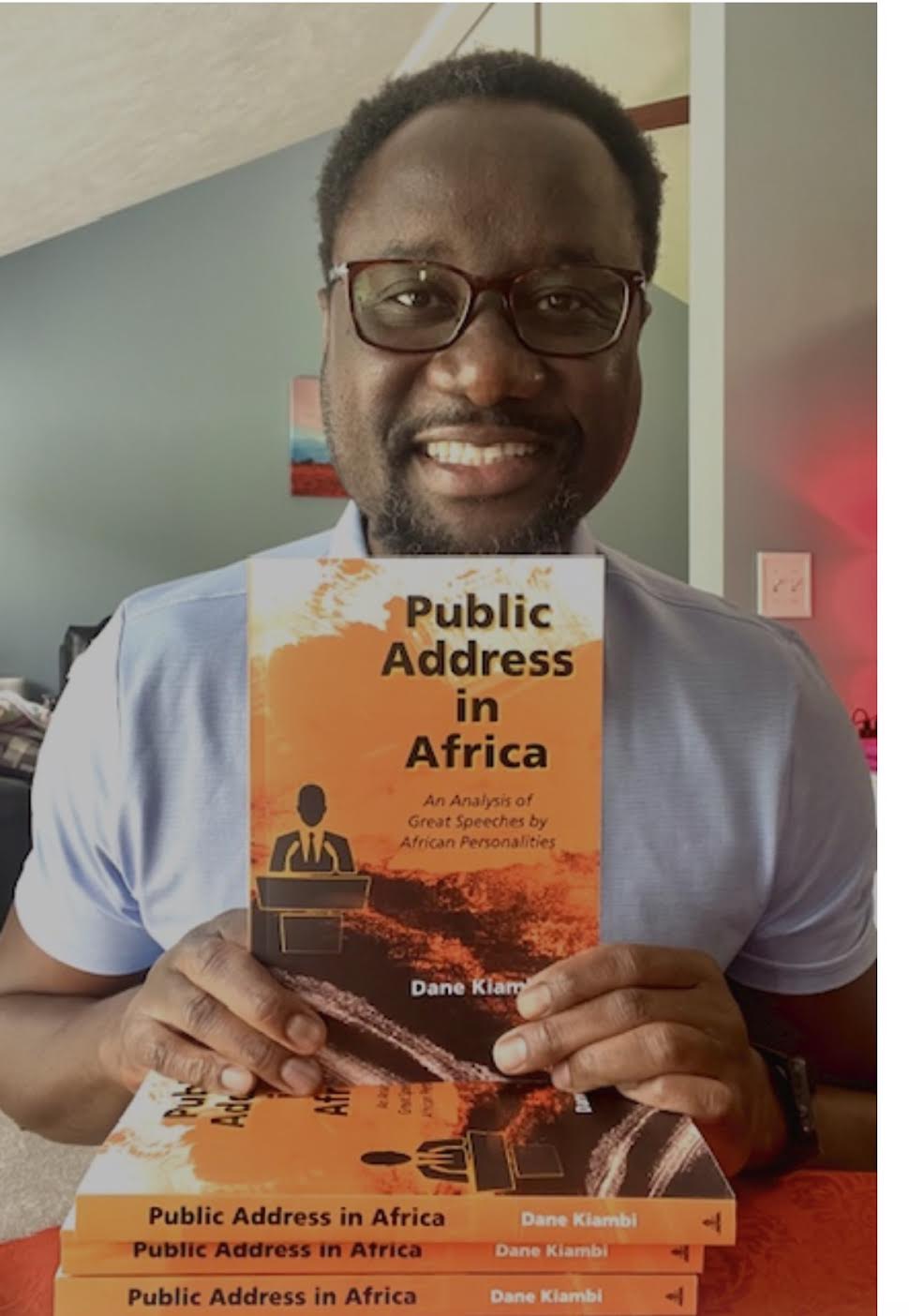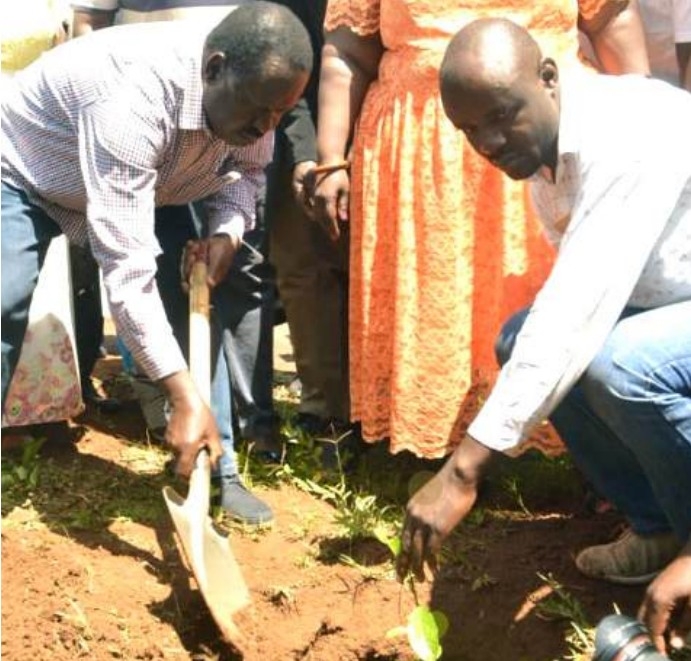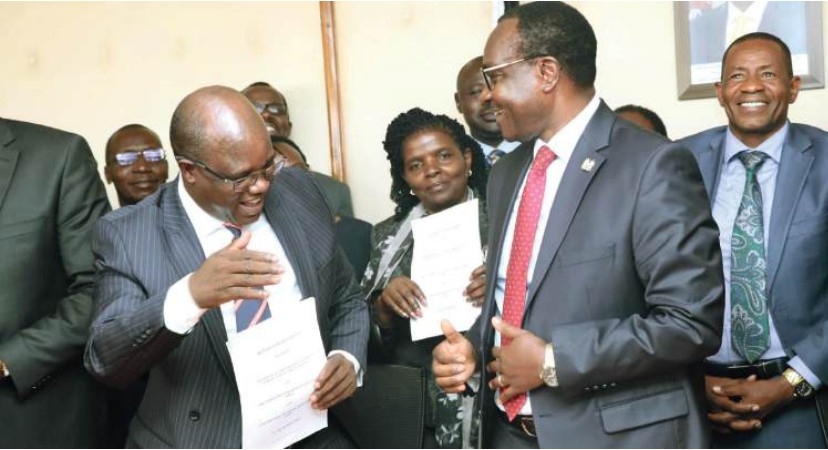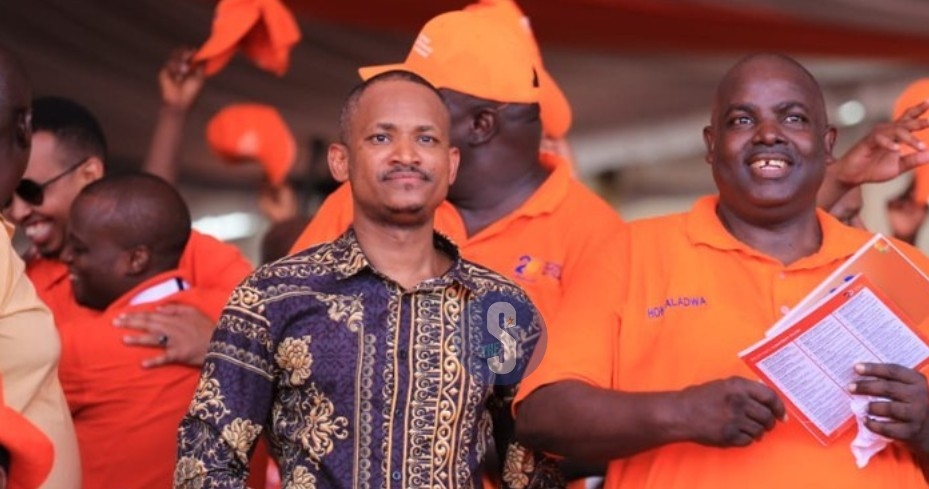
A Kenyan-born scholar who once walked the newsrooms of Nairobi has published a first-of-its-kind academic work that places African voices at the centre of global communication studies, with Kenya prominently represented through four powerful speeches that have shaped national and continental discourse.
Dr Dane Kiambi, who worked as a journalist and public relations practitioner in Nairobi before pursuing advanced studies in the United States, has authored “Public Address in Africa: An Analysis of Great Speeches by African Personalities", published by Peter Lang International Publishers in August 2025.
The 284-page scholarly work analyses 20 landmark speeches by African leaders, activists, and visionaries spanning 65 years, from Patrice Lumumba’s historic 1960 address during Congo’s independence to Ghana’s President Nana Akufo-Addo’s 2023 call for global structural economic reforms at the UN General Assembly.
Among the 20 speeches analysed, four are delivered by Kenyan personalities, reflecting the country’s significant contribution to African discourse and leadership.
The book features President Mwai Kibaki’s 2002 inaugural address “A Brighter Day for Kenya,” marking Kenya’s historic democratic transition; Professor Wangari Maathai’s 2004 Nobel Peace Prize lecture “Let Our Children Inherit a World of Beauty and Wonder,” which positioned environmental conservation as a peace and development issue; Mukhisa Kituyi’s 2013 address to a Chinese Trade Forum on young economies and global value chains and actress Lupita Nyongo's powerful 2014 speech ‘Beauty Has No Shade” at the ESSENCE Black Women in Hollywood Awards, which challenged narrow definitions of beauty and celebrated African identity.
Kiambi said the book is rich for all to read.
“Kenya has produced some of Africa’s most influential voices, and it was important to ensure they were not just included but given the scholarly analysis they deserve,” said Dr. Kiambi.
‘From Kibaki’s vision of democratic renewal to Wangari’s environmental advocacy, from Kituyi’s economic insights to Lupita’s cultural impact, these speeches represent different facets of Kenya’s leadership on the continent and globally.”
Born and raised in Meru, Kenya, Dr Kiambi brings a unique
perspective shaped by his years in Kenyan media before entering academia.
He is now an Associate Professor of Strategic Communication at the University of Nebraska-Lincoln’s College of Journalism and Mass Communications in the United States.
“Having worked as a journalist and PR practitioner in
Kenya, I witnessed firsthand the power these speeches had in shaping
public discourse and national identity,” Kiambi said.
"These weren't just political moments; they were defining communications that resonated across the continent and beyond. Yet in academic literature, they were largely absent.”
While speech analysis is a well-established academic discipline in the United States and Europe, Africa has lagged in this endeavour until now.
Dr Kiambi’s work aims to fill this critical gap and preserve the ideals of Africa’s founding fathers and mothers for current and future generations.
“For too long, public address studies have been dominated by Western voices,” Dr Kiambi said.
“This book challenges that narrative by showcasing the rich
rhetorical tradition that has emerged from Africa’s complex journey
through colonialism, independence, and modern nation-building.”
Beyond the Kenyan voices, the book features comprehensive analysis of speeches by continental giants including Patrice Lumumba’s historic 1960 Congo independence address, Nelson Mandela’s 1964 Rivonia Trial speech (“I am Prepared to Die”), Kwame Nkrumah’s 1963 clarion call for African unity, Thomas Sankara’s powerful 1984 UN address, Julius Nyerere’s 1997 address to South African Parliament, Ellen Johnson Sirleaf’s 2011 Harvard commencement address as Africa’s first woman president, Paul Kagame’s 2019 speech remembering the Rwandangenocide, Ngozi Okonjo-Iweala’s 2019 Harvard speech on Africa’s economic potential, and Cyril Ramaphosa’s 2020 Africa Day address.
The collection spans multiple generations and includes
translations from French and Portuguese to capture the full linguistic
diversity of African oratory.
Each speech is analysed for its historical context, rhetorical strategies, and lasting impact on both national and pan-African consciousness.
Dr Kiambi’s analysis reveals common themes that unite sub-Saharan Africa: the legacy of colonialism, the pursuit of unity, economic self-determination, and the ongoing struggle for global recognition and respect.
The book has garnered praise from leading communication scholars worldwide. Dr Ronald L. Jackson II, Professor at the University of Miami and past President of the National Communication Association, calls it “a wonderful compendium of sub-Saharan African orators” and “a necessary resource unmatched by any other rhetoric text available.”
Dr Mary E. Stuckey, Edwin Erle Sparks Professor of Communication at Penn State University, notes that the volume “fills an important gap in the study of political communication” and “illustrates just how much we learn by including international examples of political oratory in the canon of essential speeches.”
Dr Kiambi, who specialises in strategic communication and international public relations with a focus on sub-Saharan Africa, maintains strong ties to Kenya through his research.
His work on crisis communication and public relations practices frequently centres on African contexts, particularly Kenya.
“The public address curriculum ought to take the student well beyond the United States and—to a small extent—Western Europe. Public Address in Africa facilitates that shift—allowing the opportunity to be seized and the challenge to be accepted,” noted Theodore F. Sheckels, Professor Emeritus at Randolph-Macon College, who wrote the book’s preface.
“Public Address in Africa: An Analysis of Great Speeches by African Personalities” is available in hardcover, paperback, and digital formats through Peter Lang Publishers and major academic booksellers.

















